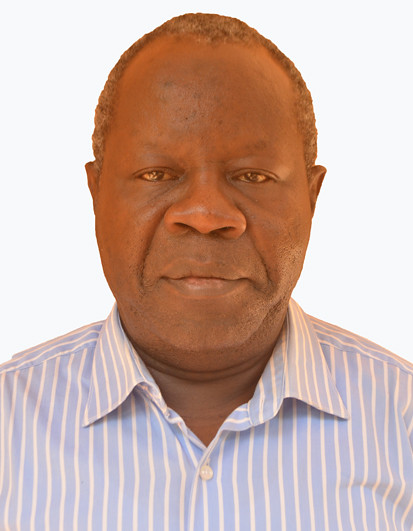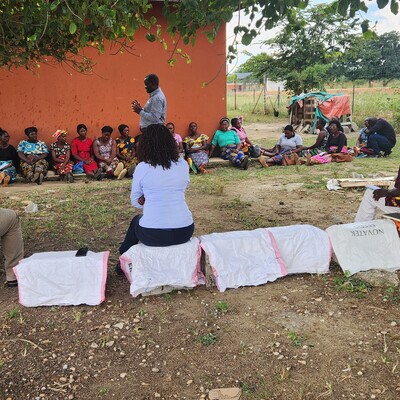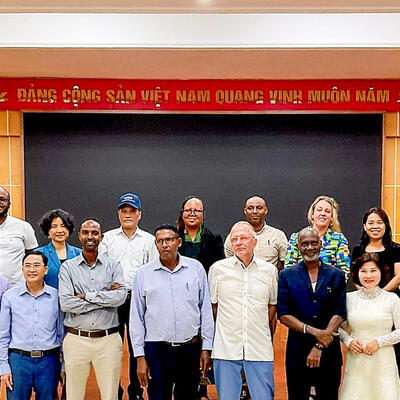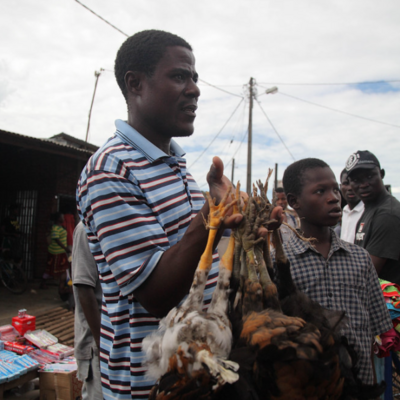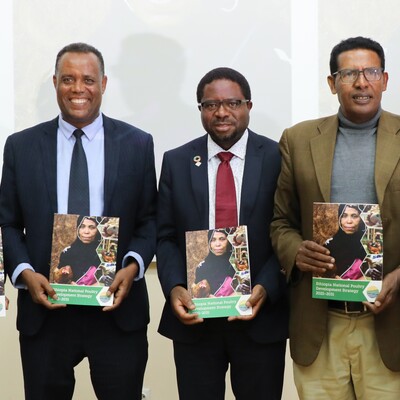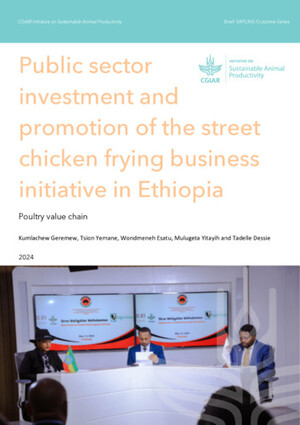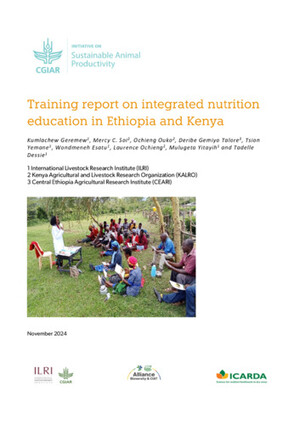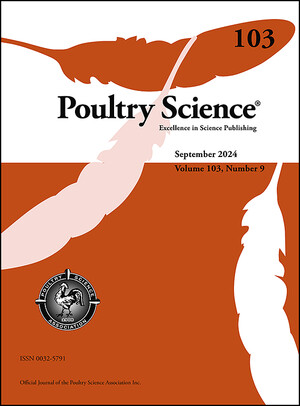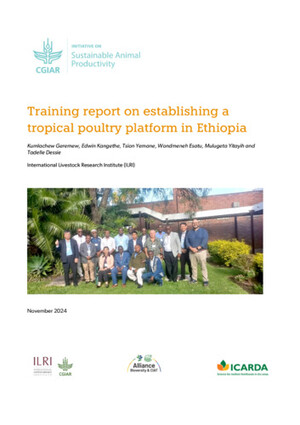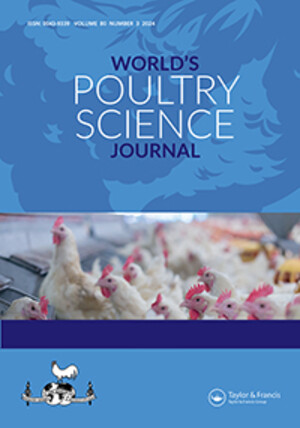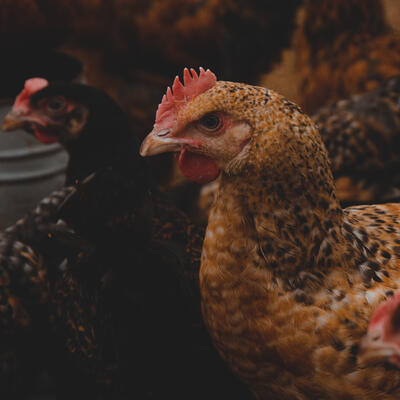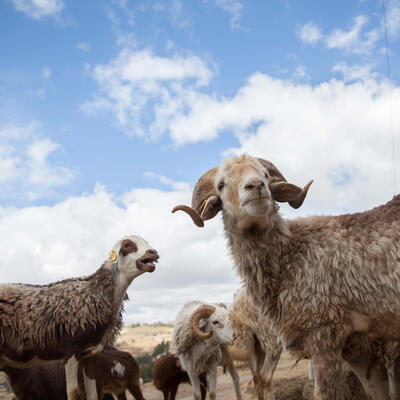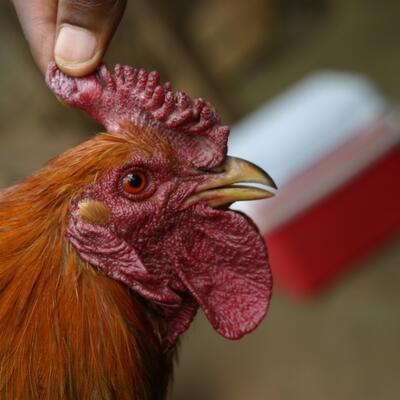
Voices on chicken genetics: Using poultry farmers forums to support entrepreneurship
Akinola Hassan, subnational coordinator in Zone 5 (Kebbi State) of Nigeria, introduces himself and his work in one of a series of portraits of key people in the African Chicken Genetic Gains (ACGG) project.
Tell us about your background
I was born at Iwo in Osun State of Nigeria 61 years ago. My bachelor’s degree is in agriculture from the Obafemi Awolowo University and I started my career working at the Federal Department of Agriculture in the Sokoto field office in the early 1980s. Later, I got a master’s degree in animal science with specialization in animal genetics and breeding and a PhD in animal genetics and breeding from the Justus Liebig University, in Germany and currently work as a professor of animal science.
What is your role in ACGG and what are you currently working to accomplish?
Since May 2015 I have been subnational coordinator for ACGG-Nigeria in Zone 5 in Kebbi State. My duties cover facilitation, execution and supervision of ACGG activities in the state which is in the dry subhumid agro-ecological zone in the northwest of the country. I supervise 12 field officers each of whom manages the project activities in 12 villages in 6 local government areas across the three Senatorial Districts of the State. Currently, we are monitoring the performance (growth and egg production) of about 13,000 chickens of six tropically-adapted genotypes (Kuroiler, Sasso, FUNAAB-Alpha, ShikaBrown, Fulani, Noiler) distributed to 420 householders.
What is the next piece of work you are focusing on?
My main focus now is to see how we can cultivate the recently formed smallholder poultry forum (SPF) with a view to transforming it into a smallholder poultry business hub, especially at the village level, alongside the completion of the on-farm performance monitoring of chickens. We have completed the third set of community innovation platform (IP) meetings. Following the formation of the SPF, a steering committee consisting of five officers (a chair, vice chair, secretary, treasurer, and public relations officer) has been put in place in each village.
Why does ACGG matter and what gets you excited about the project?
This project is touching lives! I am excited about it because it is supporting poor people in Ethiopia, Nigeria, and Tanzania simultaneously. This is a huge investment.
Secondly, I believe it will help to enhance the livelihoods of the participants, especially women, by enabling them to raise their households’ income and to improve family nutrition through the sales and consumption of poultry products.
The third source of excitement from the project is the job opportunities it offers, vis-a-vis the future roles of project team in transforming their respective societies. The knowledge and skills they will acquire in the course of ACGG across the three countries will be an invaluable asset to project beneficiaries as individuals and their communities.
What about the project causes concern for you and how could this be addressed?
What will happen to the achievements of the project after the support from ACGG has ended? How do we make policymakers, i.e., government officials at various levels adopt the project so that its achievements can be sustained? I am talking of the project’s transition. Now that that interest of the households in poultry production has been sufficiently aroused, how do we move smoothly to the next stage? Some of my thoughts on these include:
- The project may need to organize an innovation platform meeting at zonal (state) level, where policymakers and farmers attend and the latter can demand government buy-in into the project by sharing success stories of the benefits they enjoy from it.
- Comprehensive, but specific reports on the activities and achievements of the project should be given to the respective state governments, with a request for continued support for the development of poultry value chain.
- The ACGG Africa-wide program should also consider encouraging and supporting the entrepreneurial interests of some of its current beneficiaries in order to make the most of the investments made on them so far.
What do you foresee as the lasting impact of ACGG?
Though an impact assessment of the achievements of the ACGG is yet to be carried out, I foresee the involvement of households in deciding which strain(s) of the six tropically-adapted chickens is/are most suited to their environment as the best strategy in introducing new genotypes for adoption. Making such genotypes readily available would be the lasting impact of ACGG.
Any other thought?
The smallholder poultry forum as a baby of the ACGG should spread across Africa and beyond. God bless the sponsors of the ACGG!





